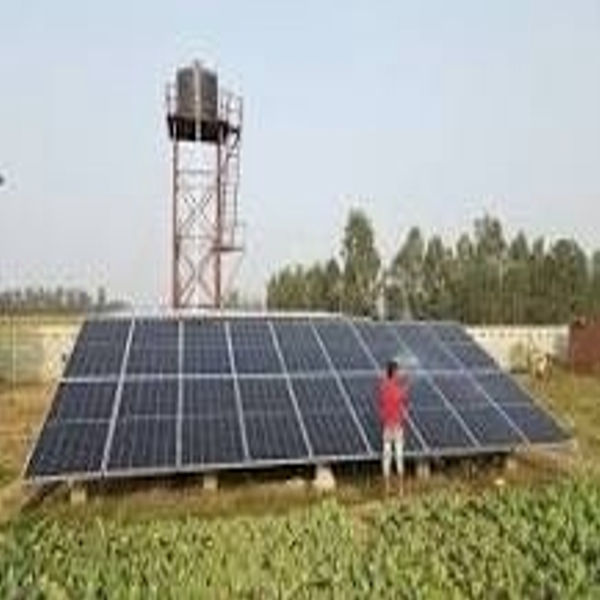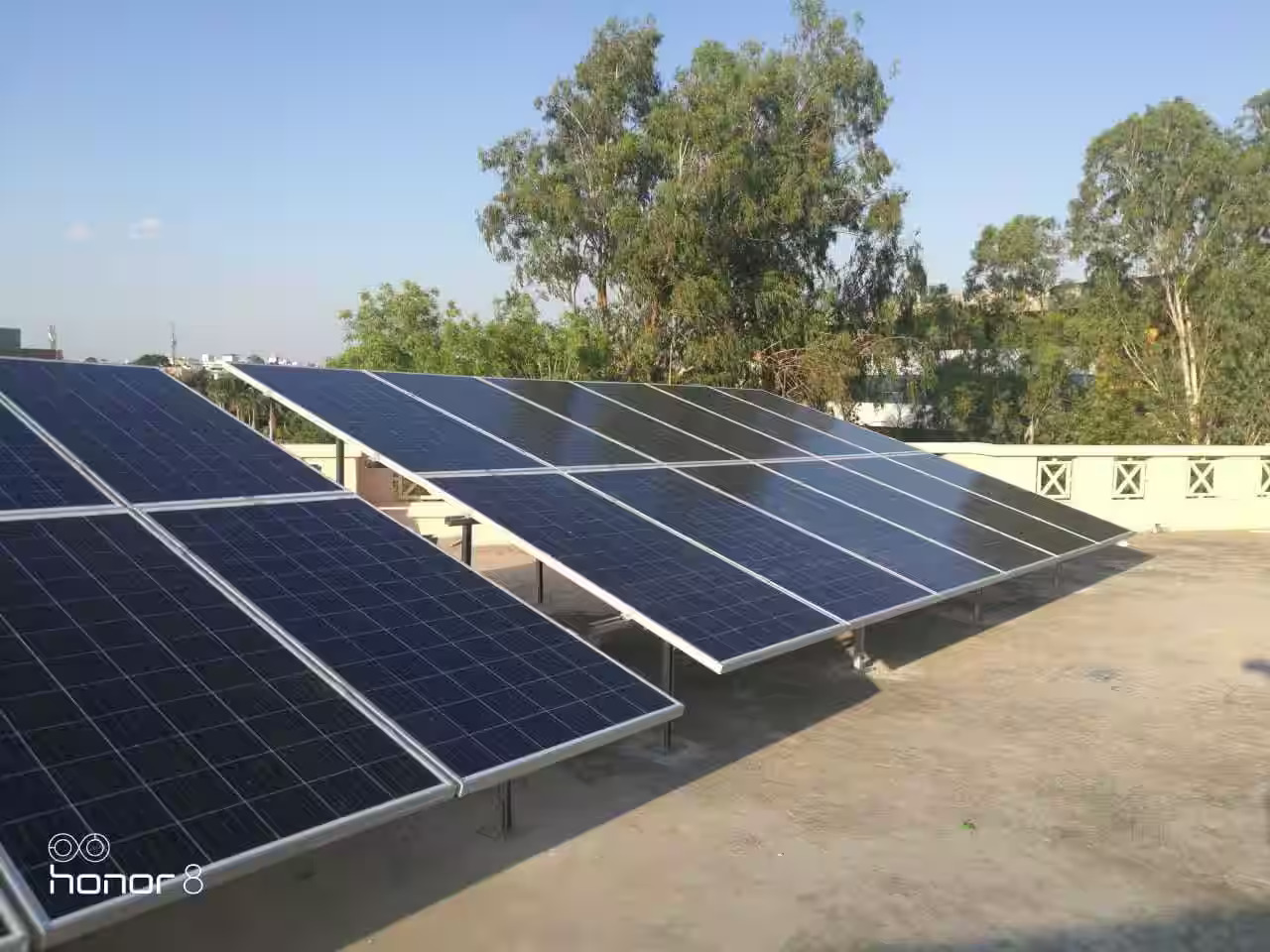Universal Power team has installed a 10 kW solar system 18 panel at M3M Key Details of the Installation: Solar System Size: 10 kW refers to the capacity of the solar system. This means the system is designed to generate up to 10 kilowatts (kW) of power under optimal sunlight conditions. Number of Panels: 18 solar panels have been installed. To estimate the power output of each panel, we can divide the system\'s total capacity by the number of panels. 10 kW / 18 panels = approximately 555 watts per panel. This indicates that each panel is likely rated around 555W, which is a common wattage for high-efficiency solar panels used in residential and commercial systems. Location – M3M: M3M could be a residential complex, office building, or another commercial facility. Without more specific information, M3M could refer to the area or project where the installation took place. If it’s a large-scale installation, such as for an office or commercial building, the solar panels are likely being used to reduce energy costs and carbon footprint. Energy Production: The energy output of the system will depend on several factors, including the amount of sunlight received, panel orientation, and local weather conditions. In an area with good sunlight, a 10 kW system could produce roughly 40-50 kWh per day on average, depending on the solar irradiance and hours of sunlight in that region. Over a year, this could amount to around 14, 600 to 18, 250 kWh of electricity. Purpose: The solar power system could be installed for various reasons: To reduce energy bills by using clean solar energy. To support sustainability goals, reduce carbon emissions, and make the building or facility more energy-efficient. To provide backup power or support the grid, especially in commercial or industrial settings. Benefits of a 10 kW Solar System: Reduced Electricity Costs: By producing energy from the sun, the system reduces reliance on grid power, thus lowering electricity bills over time. Environmental Impact: The system helps reduce carbon footprints by utilizing renewable energy instead of fossil fuels. Increased Property Value: Properties with solar installations are often valued higher due to the long-term savings on energy costs. Government Incentives: Depending on the region, there may be tax credits, subsidies, or incentives available for installing solar energy systems.
Send Message
